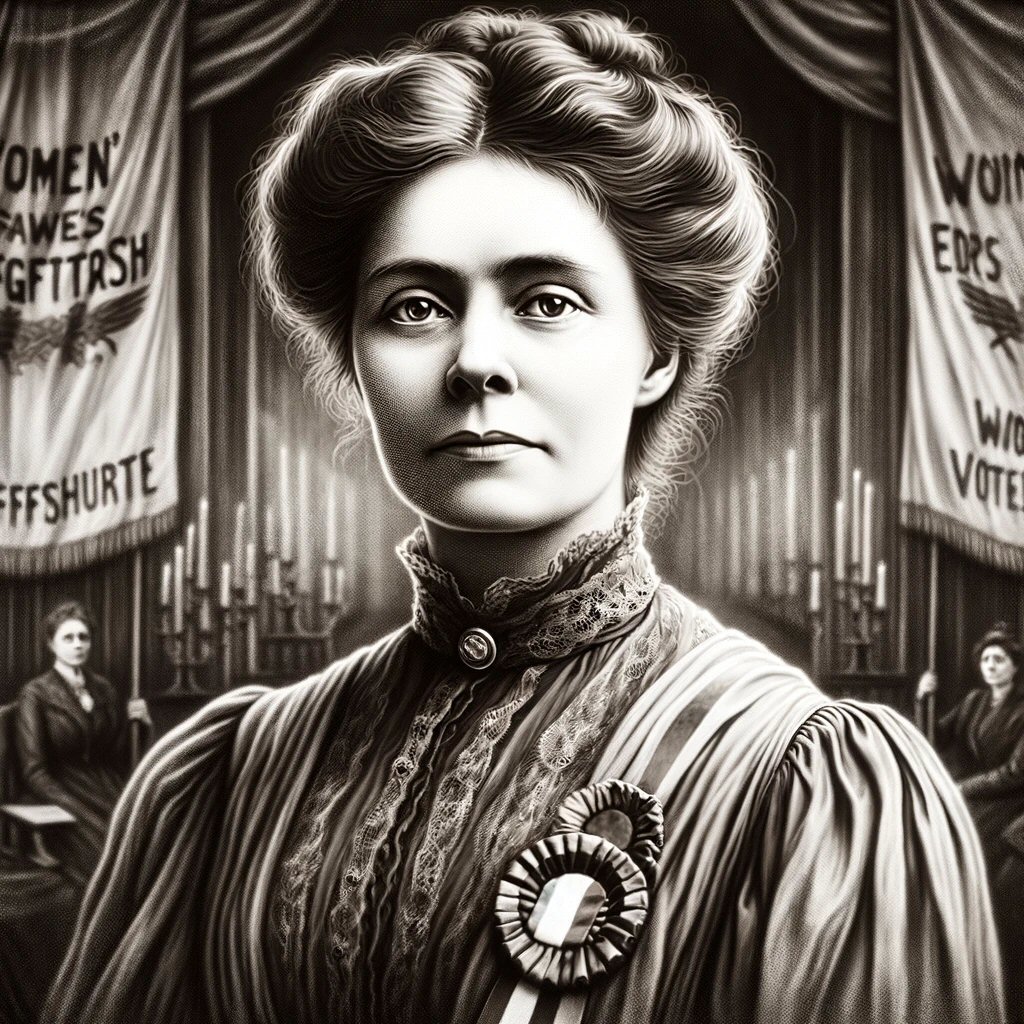 |
"Bias & Bigotry" |
||||
| More... |
Emmeline Pankhurst was born Emmeline Goulden on July 15, 1858, in Manchester, England, into a politically active family. Her parents, Robert Goulden and Sophia Crane, were passionate advocates for women's rights and the abolition of slavery, which profoundly influenced Emmeline's early views and values. From a young age, she was exposed to the suffrage movement; her parents attended anti-slavery gatherings where discussions about women's rights were commonplace. Encouraged by her family's activism, Emmeline attended the École Normale Supérieure in Paris before returning to England, where she married Richard Pankhurst, a lawyer and ardent supporter of the women's suffrage movement. The social environment during Emmeline Pankhurst's life was characterized by rigid Victorian norms and gender roles that limited women's participation in society, particularly in politics. British women were disenfranchised, and the political climate of the time largely ignored their demands for equality and voting rights. This period was marked by a growing public discourse around women's roles, spurred on by the Industrial Revolution and the increased employment of women in factories, which highlighted the stark inequities they faced. Pankhurst's activism took place in a landscape fraught with resistance to change, including often violent opposition to the idea of women voting. Her efforts were further challenged by the onset of World War I, which shifted national priorities and complicated the fight for suffrage. Despite these formidable obstacles, Emmeline Pankhurst's leadership and tenacity brought unprecedented attention and momentum to the suffragette movement in the United Kingdom. Founding the Women’s Social and Political Union (WSPU) in 1903 with her daughters, Christabel and Sylvia, Pankhurst orchestrated a series of direct actions and public demonstrations that were designed to keep women's suffrage in the public eye and pressure the government to enact reform. Her motto, "Deeds, not words," led to innovative tactics, including chaining themselves to railings, hunger strikes, and even arson. These radical methods were controversial but effective, capturing the public and media attention necessary to force political change. Her relentless campaign was instrumental in achieving significant milestones, such as the Representation of the People Act 1918, which granted voting rights to women over the age of 30. Emmeline Pankhurst's legacy is not only in her role in women achieving the right to vote but also in inspiring future generations to continue the fight for equality in all facets of life. Reference: Wikipedia.org |
||||
|
|
